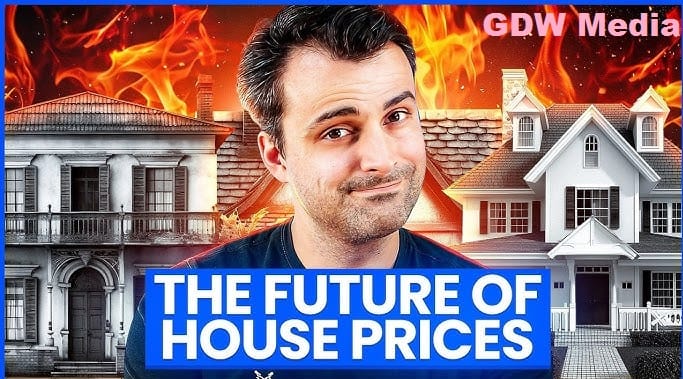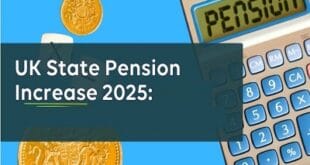
The UK housing market is making headlines in July 2025, with fears of a “house price crash” trending after Rightmove reported a record July price drop. Posts on X, like one from @PropertyUK_ noting “stagnant prices and Rightmove actually calling price drops in July,” reflect growing pessimism. Nationwide reported a 0.8% monthly decline in June, the largest in over two years, while real-term prices (adjusted for inflation) have fallen 15.6% since 2022. Yet, experts argue a full-scale crash like 2008’s 20% drop is unlikely due to low unemployment and housing shortages. Factors like stamp duty hikes, high mortgage rates, and global economic uncertainty, including Trump’s trade tariffs, are cooling the market. So, is a crash coming, or is this a temporary dip? This post dives into the latest data, expert forecasts, and what it means for buyers and sellers.
Current State of the UK Housing Market in July 2025
The UK housing market is showing signs of strain. According to Nationwide, house prices fell 0.8% in June 2025, the sharpest monthly drop since February 2023, bringing the average UK property to £271,619. Annual growth slowed to 2.1%, down from 3.9% in May. Halifax reported a 0.4% monthly decline in May to £296,648, with annual growth at 2.5%. Rightmove’s July data was even bleaker, noting a record 1.2% drop in asking prices to £378,420, the largest July decline in two decades. HM Land Registry, the most comprehensive source, reported a 3.9% annual rise in May to £269,000, but its six-week data lag misses recent shifts. Transaction volumes are down 12% year-on-year, with 81,470 sales in May, per HMRC. Despite nominal growth, real-term prices (adjusted for 3% inflation) have dropped 15.6% since 2022, equating to a £49,000 loss in value for the average home.
Why Are UK House Prices Falling?
Several factors are driving the downturn:
-
- Stamp Duty Changes: In April 2025, stamp duty thresholds dropped from £425,000 to £300,000 for first-time buyers and from £250,000 to £125,000 for movers, adding thousands to purchase costs. This led to a March buying rush (177,440 sales) and a subsequent April slump (64,680 sales). Experts like Jeremy Leaf note that unsold stock from March is softening prices.
-
- High Mortgage Rates: The average two-year fixed-rate mortgage was 5.03% on July 16, 2025, down from 5.52% in February, but still high compared to 2021’s 1.2%. The Bank of England’s base rate, at 4.75%, may see further cuts, but affordability remains a challenge.
-
- Economic Uncertainty: Global factors, like Trump’s trade tariffs and a potential UK recession, are dampening buyer confidence. The UK’s deficit, exceeding 5% of GDP, raises fears of higher interest rates, which could trigger a sharper decline.
-
- Increased Supply: Rightmove reports a 10-year high in available properties, reducing sellers’ pricing power. 38% of listings in 2024 saw price cuts, up from 24% in 2022.
Regional Variations: London vs. Northern Ireland
The market varies sharply by region. London, with the lowest annual growth at 1.1% (average price £529,369), is seeing buyer demand drop 4% year-on-year, per Rightmove. X posts claim detached homes in NW London fell 35% from £2.2m to £1.3m, though this is unverified. Northern Ireland, conversely, posted a 13.5% annual rise to £205,796, the highest since 2021. Scotland (3.9%) and Wales (3.6%) also outperform. Affordable urban areas like Manchester are seeing sustained demand, while second-home hotspots like Cornwall face oversupply due to doubled council taxes.
Expert Predictions for 2025 and Beyond
Forecasts are mixed:
-
- Optimistic Views: Nationwide’s Robert Gardner expects activity to rebound as mortgage rates ease and unemployment stays low. Reuters’ poll of 21 experts predicts a 3.1% rise in 2025, with some forecasting up to 6%. Savills sees a 7% increase in 2026 if rates drop.
-
- Pessimistic Views: Fred Harrison, citing his 18-year property cycle, predicts a peak in late 2026 followed by a crash in 2027, with prices falling 15–20%. MoneyWeek warns that rising bond yields and a 5% GDP deficit could force interest rate hikes, triggering a collapse.
-
- Neutral Views: Zoopla forecasts flat growth in 2025 due to increased supply and affordability issues. The OBR predicts steady 2.5% annual growth to 2030, rejecting Harrison’s crash scenario.
Timeline of Recent UK Housing Market Events
| Date | Event | Details |
|---|---|---|
| March 2025 | Stamp Duty Rush | 177,440 sales as buyers beat April stamp duty hikes. |
| April 2025 | Stamp Duty Changes | Thresholds drop to £300,000 (first-time buyers) and £125,000 (movers). Sales fall to 64,680. |
| May 2025 | Price Decline | Halifax reports 0.4% monthly drop; annual growth slows to 2.5%. |
| June 2025 | Largest Monthly Drop | Nationwide notes 0.8% fall, the biggest since February 2023. |
| July 2025 | Record July Drop | Rightmove reports 1.2% decline in asking prices, the largest in 20 years. |
Advice for Buyers, Sellers, and Investors
Buyers: The current buyers’ market, with a 10-year high in property supply, offers negotiation power. Focus on affordable urban areas like Manchester. Be cautious of overpriced listings, as 38% of 2024 sales involved price cuts. Consider fixing mortgage rates now, as cuts are expected in 2025.
Sellers: Price competitively, as Zoopla warns that overpricing deters buyers. Highlight energy-efficient features like solar panels, which are increasingly popular. Avoid selling in high-supply areas like Cornwall unless essential.
Investors: Buy-to-let opportunities in London and Birmingham are growing due to rental demand. Ensure properties generate positive cash flow, as mortgage rates remain high. Long-term holding may yield gains if prices rebound by 2026.
Frequently Asked Questions About UK House Prices in 2025
1. Will UK house prices crash in 2025?
Experts like Nationwide predict a 3.1% rise, but real-term declines (15.6% since 2022) suggest a hidden crash. A full crash is unlikely due to housing shortages.
2. Why are UK house prices falling?
Stamp duty hikes, 5.03% mortgage rates, increased supply, and economic uncertainty are key drivers.
3. What caused the July 2025 price drop?
Rightmove reported a 1.2% drop in asking prices, linked to post-stamp duty slowdown and high supply.
4. Is London facing a house price crash?
London’s growth is slow (1.1%), with unverified claims of 35% drops in NW London. Demand is down 4%, but a crash is unlikely.
5. What is Fred Harrison’s 2026 crash prediction?
Harrison’s 18-year cycle theory predicts a price peak in 2026, followed by a 15–20% crash in 2027.
6. How do stamp duty changes affect house prices?
April 2025 threshold cuts increased costs, slowing demand and softening prices.
7. Which regions are seeing price growth?
Northern Ireland (13.5%), Scotland (3.9%), and Wales (3.6%) outperform London (1.1%).
8. Are mortgage rates causing the downturn?
High rates (5.03% for two-year fixes) limit affordability, but expected cuts may boost activity.
9. Is it a good time to buy a house in the UK?
A buyers’ market with high supply favors negotiation, but affordability remains tough for first-time buyers.
What’s Next for the UK Housing Market?
While a 2008-style crash seems unlikely, real-term declines and regional disparities signal a challenging 2025. Buyers should seize negotiation opportunities, sellers must price realistically, and investors can explore rental markets.
 GDW Media
GDW Media


